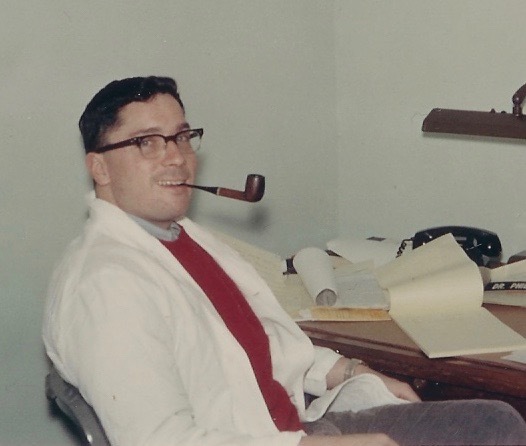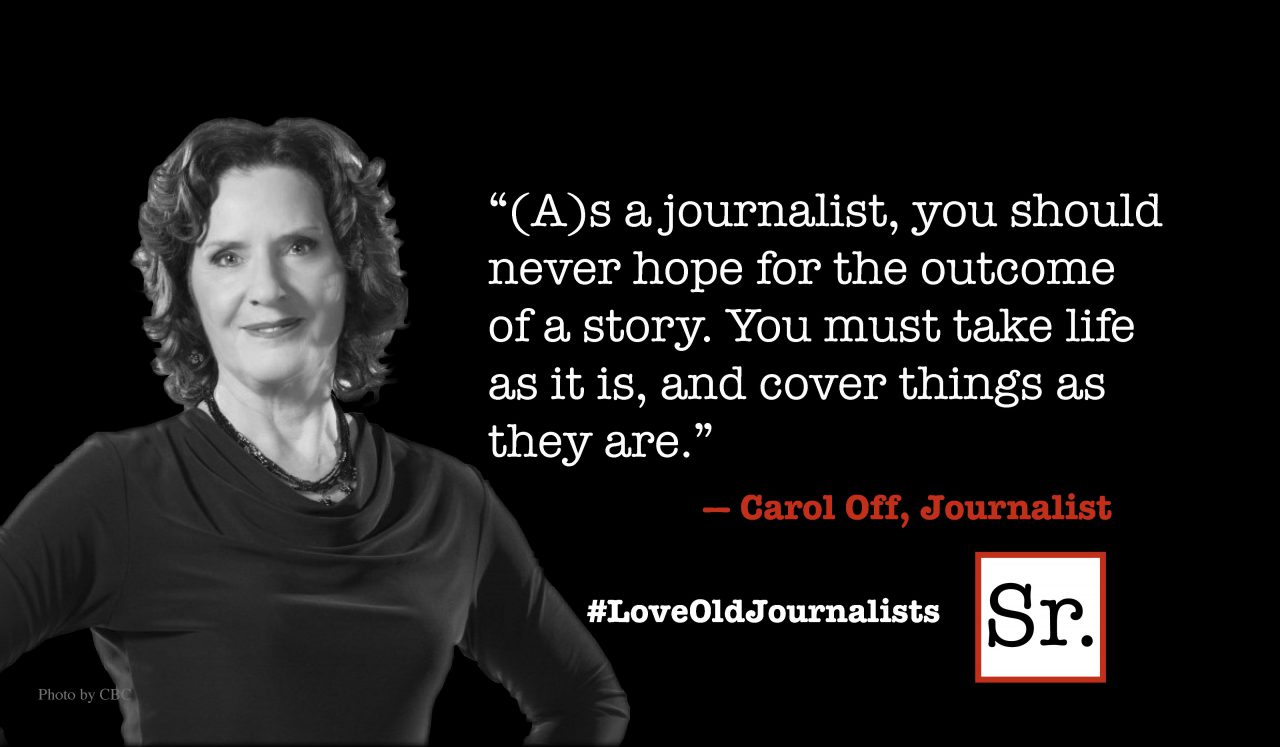
Fred Sparling in 1964
Medical school classmates celebrated our 50th reunion five years ago while I recovered from surgery in an intensive care unit. Friends told us they offered toasts and showed an old picture of Joyce and me in a caribou skin tent. They apparently had a wonderful celebration. We vowed to join them for the next big reunion.
As we approached our 55th, almost all of us were 80, and some had left us for good. Discussion on a conference call to plan the events shifted to a new kind of sharing opportunity: TED talks or something similar, short one-person monologues. I offered to give such a talk, about overcoming bigotry.
A retired classmate, a psychiatrist who is now an experienced adult learning teacher, was recruited to lead the TED talks. He became my mentor and my muse over the course of a number of drafts. This talk seemed amazingly important for some reason. There would be no more than 40 people in the room. I have spoken before 4,000 people. But this audience is a kind of exalted family, men and a few women who impressed with their intellect and talents on our arrival at Harvard Medical School in 1958.
Here were people who played music at the highest level, who recited Shakespearean sonnets or read Freud while I tried to memorize the course and relations of some nerve. Clearly their capacities far exceeded my own. Many became leaders in academia and in practice. Some remained in the Harvard academic medical community, sometimes called “mecca” (especially by Harvard people), while I emigrated to the provinces of North Carolina to pursue my destiny.
A few of us gathered at a friend’s house overlooking the Harbor for dinner on our first evening back in Boston, avoiding the gala dinner in a big hotel. Below us, a bridge was suspended by fiery ribbons, and the water sparkled with lights from waterfront buildings. A full moon allowed a glimpse of the masts of the USS Constitution (“Old Ironsides”) in dry dock.
We met the new dean, Dr. George Daley, at a breakfast event. He is a very good man with a tough job: fixing an inherited annual deficit in the tens of millions. Should he sell the naming rights to our medical school for a billion dollars? What an unthinkable question, a sure sign of changing times in medicine.
The dean's beloved new medical curriculum was dwarfed by this crisis. His plan was to completely eliminate lectures and replace them with group discussions, depending on the students to fully assimilate readings sent earlier to learn the base facts.
Imagine future Wikipedia entries: “Medical school professors: A former group of self-possessed people intent on transferring their knowledge of all the important facts to hapless students who sat suffering for hours on end.” No more stories of professors such as Soma Weiss, who once interrupted a lecture to announce to his class that he had just suffered a ruptured Berry Aneurysm. Before he collapsed, he had the presence of mind to describe the pathophysiology of what was happening, as his ruptured artery bled into his brain. They don’t make them like that anymore.
We gathered with our spouses for discussions about our lives, how we were adapting to new challenges. The conversation foundered on personal stories by several people about poor medical care, and how their lives are diminished by illness and disabilities. Their passion and anger were surprising. It was difficult to refocus on the positives of being retired.
A few bravely offered that their lives are now enriched by opportunities to read and learn new things, by music and poetry and gardening, time for reflection, time for family and friends. One expressed gratitude that good fortune had enabled him to have a “good bite of the apple.”
There was a consensus that much had been lost in the new business practice of medicine, which emphasizes computerized records, efficient (short) patient encounters, and billing (money) over face to face personal time with caregivers. Who remembers the story of a Japanese businessman who was interviewed by a reporter from National Public Radio over 20 years ago about why he came from Tokyo to Seattle to see his personal physician? His answer was engraved in my memory: “Because my physician here looks at my face … He looks at my face.”
Why do we insist on organic chemistry as a requirement for medical school? Why not insist on more humanities, since it is the humane that so many are missing as recipients of care in the new era? Not to say that all physicians are lacking in humanity, as many are entirely caring and give of themselves totally. Joyce and I are fortunate to have such physicians care for us. But the anecdotal evidence is quite convincing that there is a growing problem due to time constraints on caregivers, and the effects of hand-offs among members of health care teams.
Dean Daley undoubtedly understands the same need. Now that everyone can access facts almost instantaneously from anywhere with a smartphone, the current problem is in knowing how to ask the right questions, how to use computers as a partner in making complex decisions, and how to humanely convey decisions to patients. But can one teach empathy and kindness? Can doctors look at their patient’s face while entering the billing data into their computer?
At the TED talks, my muse and mentor opened up the session. I was next. Using no notes, and speaking particularly slowly to conserve my asthmatic breath, I delivered my message. We can learn to love others whom we were once taught to disparage. Racism, antisemitism, xenophobia are toxic. We must respect and listen to each other. We are all the same.
My classmates seemed to like the performance. They said they liked the slow cadence, the pauses, not realizing this was due to dyspnea. One person even stood up to clap. The rest, more sensible and sedate, were polite.
The other talks were delivered with feeling and passion. A talk about poetry in the practice of medicine was deeply moving. A talk about the joys of gardening, of returning to one’s childhood roots evoked poetic images. A few people were on the edge of tears. There was a sense of something special happening, amplified by awareness of future losses.
It was a beautiful day, and a small group of us walked through the green park called The Fens to take the MTA (subway) to Cambridge. We passed by my old residency and subspecialty training base, the Massachusetts General Hospital, and the old gray stone former Charles Street Jail (currently a boutique hotel) on grounds adjacent to the MGH. Memories were still fresh of being sent as a 27-year-old intern from the emergency room at 2 a.m. to see a jail prisoner with chest pain. How scared I was, with prisoners housed in vertical rows like animals caged in a zoo, banging the bars and yelling taunts. I made up my mind this was not a place I wanted to visit in another capacity, no fudging on taxes for me!
Other ER stories were suddenly vivid, including one about an obese woman whose buttocks were inexorably trapped in a toilet seat. She was brought in with the toilet seat still attached to her buttocks. She did not survive; the blood supply was cut off, which resulted in her gluteal necrosis. Ghoulishly funny at the time, and quite sad. Once we were very young.
The MTA lumbered over the Charles River Bridge, sailboats dancing in the afternoon breeze. Embarking at Harvard Square, a stroll through the ancient Harvard University campus took us to the new Harvard Art Museum. The grounds were full of happy people of many colors and ethnicities back for their reunions, pushing their young infant children in strollers, strikingly more diverse than our class of 55 years ago.
On the last morning, a walk took us by the medical school, classical white stone buildings surrounding a central green courtyard. Building D, where I learned to do science as a postdoctoral fellow long ago, looked unchanged on the outside. The dormitory where we first gathered was across the street, colored a rich golden hue in the morning light. It has changed some, noticeably no longer being a place where meals are served, but it seemed entirely familiar, including the common room where I first met many of my classmates. More memories flooded my brain, especially of departed old and dear friends.
We continued down Avenue Louis Pasteur to the Isabella Stewart Gardner Museum, passing the new research building that is both the pride of the medical school and its biggest problem, the principal source of the crippling debt. It is lovely and functional on the inside, but from the outside it seems architecturally out of place. Tall and deep and broad, it is a shining steel gray monolith of glass. It seems huge, endless, merging into other buildings even taller, overwhelming, a shrine to the growing need for space to teach and do science, as well as the corporatization of modern medicine – an edifice to what we have lost as well as gained.
The Isabella Stewart Gardner Museum is lovely. Constructed over a century ago to recreate a 15th century Venetian palace, with a central courtyard, it houses a personal collection of the finest in paintings, textiles, and furniture. Programs of music embellish the community throughout the year. It is the essence of taste and elegance. It also is a metaphor to what we perceive to be the condition of medicine today, for inside hang empty frames from great paintings that were stolen in 1990, a Vermeer, Rembrandts, Degas, others.
My classmates and I have been fortunate to practice medicine and pursue science under the best possible conditions, to have a really good bite of the apple. Once young and promising, we now are wiser but aging. Entering our ninth decade, we can see the end. There may not be another reunion. Fortunate indeed to see and enjoy each other again.
Carpe diem.








